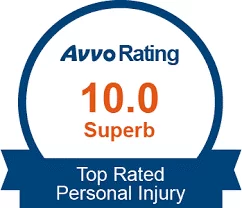Have you been the victim of an accident due to negligence or malicious intent? You have rights beyond compensation for physical injury alone. A personal injury attorney can help you determine if you qualify for pain and suffering damages.
What is “Pain and Suffering Damages?”
When you are injured, there are different types of damage. You could have broken bones from a car accident. You could also have PTSD from being trapped in the car waiting for help to arrive.
Pain covers physical injury and medical bills. Suffering refers to financial hardship, mental or emotional anguish, or even the loss of a loved one.
Your Past, Present, and Future
Your personal injury attorney will carefully review your case. They will look at the past, present, and future to figure out your potential total damages.
The past shows what your life used to be like before the accident. Your earnings, your level of mobility, and your state of mind are all benchmarks.
The present shows what your life is like now. Maybe your broken bones are healing, but you still have nightmares every night. Perhaps you returned to work, but you can’t make up the paychecks you missed while you were recovering.
The future shows what you expected from your life. Medical treatments might be an ongoing cost. Chronic pain or disability can alter your plans for your life.
Pain and suffering damages should cover the costs you have right now and the future. You also deserve compensation if the future you planned isn’t possible for you anymore.
Statutes of Limitations
It’s essential to act quickly if you have a personal injury claim. In Georgia, statutes of limitations apply to personal injury case filings. You have:
- Two years to file a personal injury claim
- Two years to file a medical malpractice claim
- Six months to file a claim against a local municipality
- 12 months to file a claim against the county or state
It’s essential to file before the statute of limitations runs out. Otherwise, you miss your window of opportunity to get justice and compensation.
However, filing too soon can also be a mistake. Don’t settle too quickly for a sum that barely covers your current medical bills with only a little left over. Underlying effects from your injury can show up months after your accident.
To get the maximum award, you’ll need as much supporting documentation as possible. Documentation can include medical records, any psychiatric diagnosis, and analysis of your financial losses.
If you can’t return to work in the same capacity, your loss of future earnings could be considerable. If the accident caused you deep mental or emotional trauma, it could take time to manifest.
Meet with a personal injury attorney as soon as possible to discuss your case. They can help you lay out a plan and timeline for filing your case and gathering your documentation.
Limits on Pain and Suffering Damages
A personal injury case reviews two different types of damages. There are economic damages (also known as special damages) and non-economic damages (also known as general damages.)
Economic damages include concrete costs associated with your injury. They cover the costs of medical care and the loss of wages. Economic damages are subject to caps at the specific dollar amount of losses and expenses that you can prove.
Non-economic damages cover the pain and suffering you endure. Examples include changes in your life status, like experiencing chronic pain or being forced to give up working in your chosen field or industry.
Pain and suffering could also include depression, inability to sleep at night, PTSD, or loss of your ability to enjoy life. By law, there are no caps on non-economic damages in the state of Georgia.
Modified Comparative Negligence
Georgia has a modified comparative negligence rule. This adjusts awards for personal injury by taking into account the plaintiff’s level of negligence. If the defense can show that your injuries were partially your fault, this proof reduces your award.
Example one:
If you were speeding at the time of the accident, the accident could be partially your fault. If you are found 20% at fault for the car accident that caused your injuries, your award is reduced by 20%. In the first example above, if your total award is $60,000, it could be reduced to $48,000.
Example two:
If you entered your neighbor’s yard without permission, you might be found partially at fault if their dog attacked you. If you are found 40% at fault for your dog-bite injuries, your award is reduced by 40%. In the second example above, a total award of $500,000 could be reduced to $300,000.
If the court finds you to be 50% or more at fault for your injuries, you could be barred from seeking any damages.
Benefits of Keeping an Accident Journal
In the days, weeks, and months after your personal injury, keep an accident journal. Write down everything you can remember about the accident itself. List the changes in your life since your accident.
Things to note in your journal include:
- Pain levels since your accident
- Your medical visits and prognoses
- Sleep quality, including insomnia, nightmares, or constant fatigue
- State of mind, including depression, anxiety, or racing thoughts
- Changes in mobility
- Your ability do everyday tasks
- Return to work or school, and how well you cope
- General enjoyment of life (or lack thereof)
- Disruptions to your former routines
- Damage to your relationships
- Alterations to plan for your future
Revisit your journal frequently and update it. Pain and suffering damages are determined based on the severity of changes in your life. Your personal injury attorney will work with you to identify which changes are temporary and which may be permanent.
Wrongful Death
Awards for wrongful death suits in Georgia are similar to those for personal injury filings. If you are a family member of a victim, you can recover both economic and non-economic damages.
Economic damages are calculated based on the estimated lifetime earnings of the deceased. This provides protection and a standard of living for dependent survivors, like children or spouses.
Non-economic damages are substantial, as they try to put a monetary value on the victim’s life and the loss their family suffers. If extreme negligence contributed to the wrongful death, there could also be a case for punitive damages.
Medical Malpractice
Medical malpractice is a subset of personal injury law. Your attorney will need to prove that the medical provider or hospital failed in duty of care. If malpractice or medical negligence caused an injury, economic and non-economic damages apply.
Insurance Companies Are Not Your Friends
It’s important to remember that when you file a personal injury case, you typically aren’t filing against a person or a company. The defendant is usually an insurance company. Their sole goal is to get you to accept as small of a settlement as possible.
Always depend on your attorney to handle all negotiations with an insurance company. Don’t accept any offer without having it vetted first. A professional personal injury lawyer can almost always get you a higher award.
Personal Trial Lawyer, Atlanta
Choose Greathouse Trial Law in Atlanta, GA
Do you need a qualified personal injury lawyer in Georgia? Discuss your case during a free consultation by calling us today at (678) 310-2827. At Greathouse Trial Law, based in Atlanta, GA, we work hard for clients across the state.
You need lawyers who believe in fair and just compensation for your injuries. Our skilled team of attorneys understands how to negotiate with insurance companies, and will fight for you in court if necessary. We have a strong track record of winning personal injury cases statewide, and we’re ready and able to assist you.
Disclaimer: The information in this blog post (“post”) is provided for general informational purposes only, and may not reflect the current law in your jurisdiction. No information contained in this post should be construed as legal advice from the individual author or the law firm, nor is it intended to be a substitute for legal counsel on any subject matter. No reader of this post should act or refrain from acting on the basis of any information included in, or accessible through, this post without seeking the appropriate legal or other professional advice on the particular facts and circumstances at issue from a lawyer licensed in the recipient’s state, country or other appropriate licensing jurisdiction.
Copyright© 2020. Greathouse Trial Law. All Rights Reserved.
Greathouse Trial Law
260 Peachtree Street NW
Suite 803
Atlanta, GA 30303
(678) 310-2827


